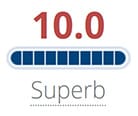Imagine you find yourself in a situation where you have been in an accident, but you also believe you played a part in causing it.
This is a common dilemma, and the answer can be quite complex, especially in Illinois, where they have legal comparative negligence.
Understanding comparative negligence
Comparative negligence is a legal principle determining the division of fault among the parties involved. In cases where bodily injury or property damage occurs, this concept plays a pivotal role. There are typically two primary parties involved: the injured person, known as the claimant and the person responsible for the accident, known as the insured.
When both drivers bear some responsibility for the accident, the insurance company will decide who is liable for damages using comparative negligence laws.
Modified comparative negligence
Illinois follows a modified comparative negligence system. Under this system, an injured party can seek damages only if they are less than 50% at fault. However, the amount they can recover is proportional to their degree of fault.
Resolving comparative negligence
When resolving comparative negligence, the insurance company typically takes the lead. They evaluate their insured party’s negligence level and make an offer to the injured party based on their assessment. To do this, the insurance company may interview all parties involved, including witnesses, and review accident reports.
According to the Illinois Department of Insurance, if the insurance company believes their insured is not more than 50% at fault for the accident, they may refuse to offer any compensation for the losses. In such cases, it becomes a matter of negotiation between the injured party and the insurance company. If they can not reach an agreement, the courts make the final determination regarding comparative negligence.
Disagreement with the insurance company
If you disagree with the insurance company’s assessment of fault and compensation, you can file a complaint with the Department of Insurance in Illinois. The department will intervene by contacting the insurance company for a review of their determination. Note that the Department of Insurance does not have the authority to determine comparative negligence. This aspect of the law falls under civil law and is enforceable through the courts.
Whether you should pursue an injury lawsuit when you believe you are partly at fault in Illinois depends on various factors. Understanding comparative negligence is just the beginning.













